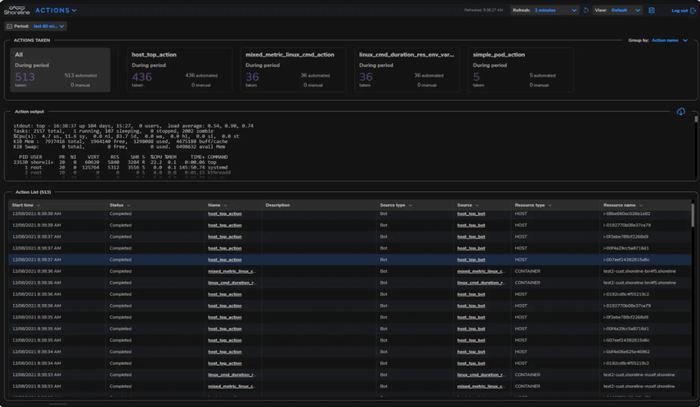Shoreline Extends Multicloud Incident Automation for CloudOpsShoreline Extends Multicloud Incident Automation for CloudOps
The hardest part of cloud operations is the operations part. It's a challenge Shoreline is looking to help solve through automation.

When it comes to CloudOps, the biggest challenge for many organizations is just keeping things running as expected, according to Shoreline founder and CEO Anurag Gupta.
Gupta spent nearly eight years at Amazon Web Services (AWS) before starting Shoreline in 2019 with the goal to automate incident response capabilities in the cloud. Shoreline's first set of services focused on AWS, and as of Feb. 16 the company now provides multicloud incident automation services that also support Microsoft Azure and Google Cloud. Shoreline's platform helps users debug potential cloud issues and provides automated remediations.
"AWS is about utility computing, and the main thing you want from your utility company is to keep the lights on," Gupta said. "The dirty secret of the cloud is that people spend as much on the people to manage infrastructure as they do on the infrastructure itself, and that doesn't scale."
The Need for CloudOps Incident Automation
Shoreline's focus is on incident automation, Gupta said.
If, for example, an alert goes off in the middle of the night for a broken storage device in a cloud deployment, Shoreline's goal is to not have to wake anyone up to fix the issue. A number of common cloud operations and infrastructure issues potentially can be remediated automatically, Gupta said.
One common way that organizations approach CloudOps automation is with infrastructure-as-code technology such as HashiCorp's Terraform. What Terraform is really good at, according to Gupta, is ensuring that the right code and configuration is in place for deployments, in what is sometimes referred to as day one operations.
What Shoreline is looking to support is day two operations — what happens after the applications are running in the cloud and things go wrong.
"Not everything can be fixed by doing another deployment," Gupta said. "If a disk is filling up, you need to grow the disk or clear it out. You're not going to deploy new software."
Another common approach to CloudOps automation is the use of auto-scaling. Auto-scaling is good for deploying identical capabilities to a similar fleet of compute instances on container pods running in the cloud, according to Gupta. And it is very good for scaling web content delivery. However, auto-scaling does not address disk repair.
"There are lots of aspects of cloud infrastructure that don't auto-scale," he said.
How Shoreline Manages to Automate Multicloud Incident Response
The way that Shoreline currently works is it deploys an agent on the target cloud platform, which can now be Microsoft Azure or Google Cloud, in addition to AWS.
The agent can work with Kubernetes container environments or virtual machine deployments, Gupta said. Regardless of the deployment model, the agent is able to interrogate the local cloud environment for applications and resources to help understand what is running. For the initial monitoring, Gupta said the agent does not need a high level of access. However, the Shoreline system does require the appropriate permission on a user's cloud account to execute changes and remediation activity.

Shoreline
"Every second we'll scrape thousands of metrics locally on each box and we'll compare it against thousands of alarm conditions, and we'll take actions when necessary," Gupta said.
He added that the entire Shoreline system runs in a tight feedback control loop that is distributed and scales as an organization's cloud operations scale.
"Our focus is in trying to help people eliminate work, not just to perform it better," Gupta said. "That's part of the paradigm shift that I think is required to do cloud operations meaningfully better."
About the Author
You May Also Like








.jpg?width=700&auto=webp&quality=80&disable=upscale)
